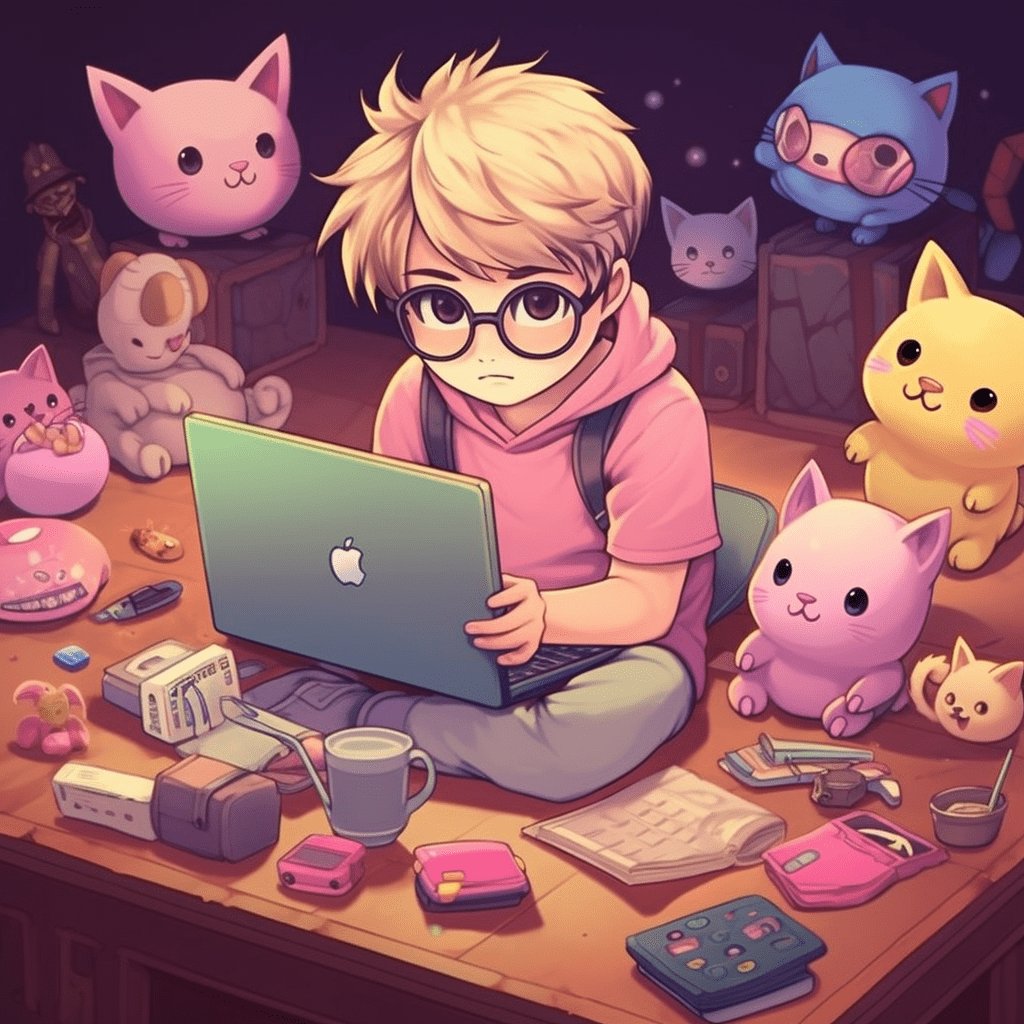Stepping into the world of non-fungible tokens (NFTs) can feel like entering a new country where everyone speaks a different language. From blockchain and minting to wallets and gas fees, NFT terminology is a dialect of its own. Understanding these terms is crucial to navigating this exciting digital landscape successfully. So, let’s dive into this beginner’s guide to the NFT lexicon.

Non-Fungible Tokens (NFTs)
Starting with the most basic term, non-fungible tokens (NFTs) are a type of digital asset. Each NFT has a unique identifier stored on a blockchain, which confirms its originality and ownership. Unlike cryptocurrencies like Bitcoin or Ethereum, which are fungible and can be exchanged on a like-for-like basis, NFTs are unique or “non-fungible.” They can represent a variety of digital and real-world items, from digital art and music to virtual real estate and more.
Blockchain
In essence, a blockchain is a public, decentralized digital ledger that records all transactions of a particular cryptocurrency. When it comes to NFTs, the most commonly used blockchains are Ethereum, Flow, and Tezos. Each blockchain has its own unique features and compatibilities, which can influence where and how your NFTs are stored and traded.
Minting
Minting is the process of turning a digital file into an NFT. When you mint an NFT, the data about the asset (like the creator’s identity, ownership history, and any associated metadata) is stored on the blockchain. This process creates a permanent, unchangeable record of the NFT. Minting can require computational power and thus often involves a cost known as a ‘gas fee.’
Gas Fees
Gas fees are transaction costs on the Ethereum blockchain, and they apply to many actions, including minting and trading NFTs. These fees go to the miners who validate and add the transactions to the blockchain. Gas fees fluctuate based on network demand – when more people are transacting, the fees go up.
Smart Contract

Smart contracts are self-executing contracts with the terms of the agreement directly written into code. They are stored on the blockchain and automatically execute when the conditions in the agreement are met. In the context of NFTs, smart contracts can be used to handle the transfer of ownership, automate royalties to creators on resale, and more.
Royalties
Royalties are a set percentage of sales that creators receive every time their NFT is resold. This revolutionary feature ensures artists continue to benefit from their work even after the initial sale, a unique advantage of the NFT space.
Wallet
A wallet in the NFT space is a digital tool used to store and manage digital assets like cryptocurrencies and NFTs. Wallets like MetaMask, Trust Wallet, and Coinbase Wallet allow users to interact with the blockchain, perform transactions, and store their NFTs safely.
Marketplace
An NFT marketplace is a platform where you can buy, sell, and discover NFTs. Different marketplaces cater to different types of NFTs and communities. Some popular NFT marketplaces include OpenSea, Rarible, NBA Top Shot, and Foundation.
We’ve covered some key phrases in the NFT lexicon, and these should serve as a good starting point. However, the world of NFTs is vast and constantly evolving, with new terms and concepts continually emerging. Let’s delve into some more terms that you might come across in the next section of our guide.
Whitelisting

Whitelisting is a process where a particular group of individuals is given access to a certain activity or transaction ahead of the general public. In the NFT realm, creators often whitelist avid supporters or community members for pre-sales or special events, ensuring these individuals get the first chance to acquire new NFTs. This is seen as a way to reward and foster a loyal community.
Fractionalized NFTs
Fractionalized NFTs refer to splitting an NFT into smaller, fungible parts that can be owned by multiple people. This concept broadens the access to highly valued NFTs that would otherwise be unattainable for the average collector. Fractional ownership provides a chance to own a piece of something extraordinary and even share in the profits should the NFT be sold.
Proof of Stake (PoS) and Proof of Work (PoW)
These terms come from the broader crypto world but are relevant to the NFT space because they dictate how transactions are validated on the blockchain. Proof of Work (PoW) requires miners to solve complex mathematical problems, a process that consumes a lot of energy. The current dominant blockchain for NFTs, Ethereum, is Proof of Stake (PoS), which selects validators based on the amount of cryptocurrency they hold and are willing to ‘stake’ as collateral. PoS is generally seen as a more energy-efficient option.
Decentralized Autonomous Organizations (DAOs)
A Decentralized Autonomous Organization (DAO) is an organization represented by rules encoded as a computer program that is transparent, controlled by the organization members, and not influenced by a central government. DAOs can play a significant role in the world of NFTs, particularly when it comes to collective buying and decision-making.
NFT Standards: ERC721 and ERC1155
These are standards for the creation of NFTs on the Ethereum blockchain. ERC721 was the first standard, allowing for the creation of unique tokens for unique assets. ERC1155, a more recent standard, allows a single contract to produce both fungible and non-fungible tokens. This is beneficial for creating multiple types of assets with varying degrees of uniqueness.
Closing Thoughts

Diving into the NFT space can feel overwhelming at first, but with time and familiarity, you’ll be conversing in NFT terminology with ease. This guide serves as a launching pad for understanding the language of digital assets. However, it is by no means exhaustive. Keep exploring, learning, and adapting to this dynamic world. With the fundamental lexicon at your fingertips, you’re well on your way to becoming an informed participant in the NFT community.
